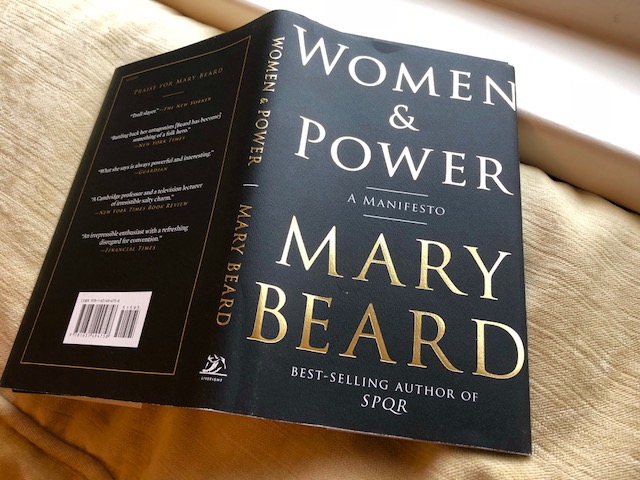a bookclique pick by Jessica Flaxman
This slender volume of scholarly fire is a “manifesto” bringing readers back in time to a major point of origin for Western sexism: ancient Greece and Rome. Although a golden age for public discourse and democracy, these cultures were largely inhospitable to women speaking in any forum with an audience, public or private.
One need only reread Homer’s Odyssey to quickly find an ancient example of a woman being told to hold her tongue, in this case the loyal Penelope whose son, Telemachus, tells her in no uncertain terms to go away and be quiet: “Mother, go back up into your quarters, and take up your own work, the loom and the distaff… speech will be the business of men, all men, and of me most of all; for mine is the power in this household.” Fast forward thousands of years to a cartoon in the English paper, Punch, where men around a business table tell their female colleague, “That’s an excellent suggestion, Miss Triggs. Perhaps one of the men here would like to make it.”
In Women & Power, Beard, a renowned Classicist at the University of Cambridge, aims to “take a long view, a very long view, on the culturally awkward relationship between the voice of women and the public sphere of speech-making, debate and comment.”
According to Beard, the Never Hilary movement has deep and global roots tracing back to the very beginnings of Western culture, where women who spoke in public were, by virtue of their public speaking, not seen as women at all. Beard’s book includes important images from art history and an entire semester’s worth of intelligence within its brief 100 pages. In the midst of the #metoo movement, Women & Power offers an important review of how, in part, we got here.
a bookclique pick by Jessica Flaxman

